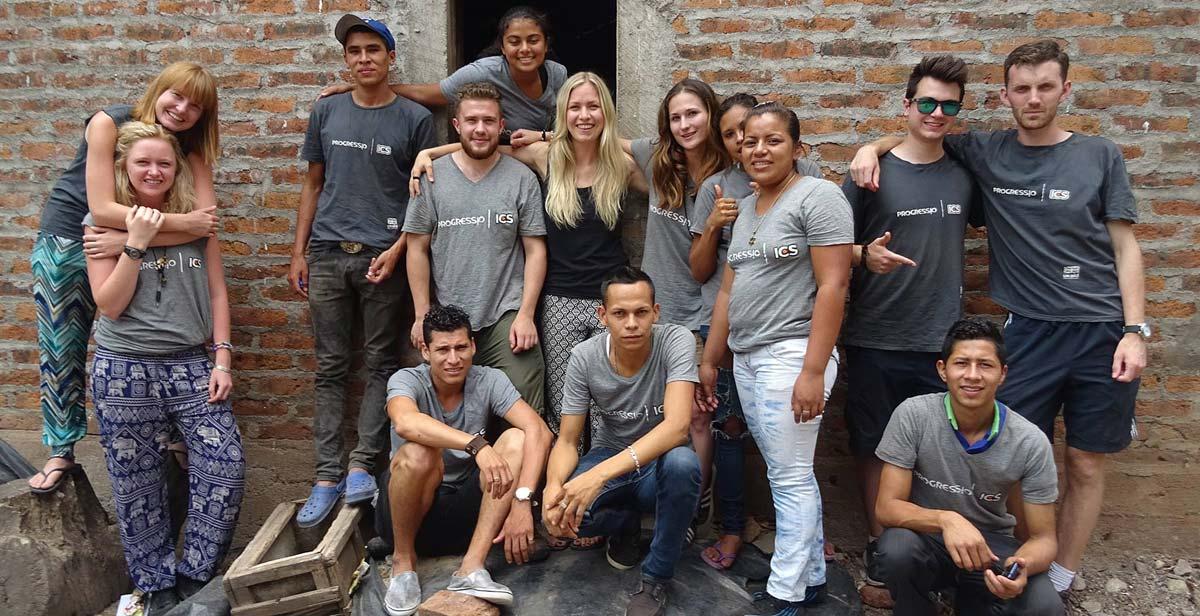Volunteering is a widely-held diverse activity that allows people to give to a range of causes whilst also gaining knowledge and life experience. Since taking a shared elective in ‘Community Volunteering’ three years ago at university, I have become curious as to what motivates a volunteer and why volunteering is so fulfilling. The most obvious motives are altruistic (doing something for others) and egotistic (looking for self-gain). However, there are also motives such as social obligations, a need to acquire an understanding of the world or a need to act and express values. Or perhaps simply it is just that with the exclusion of monetary exchange the volunteer can relax and enjoy the work at his or her pace and pleasure.
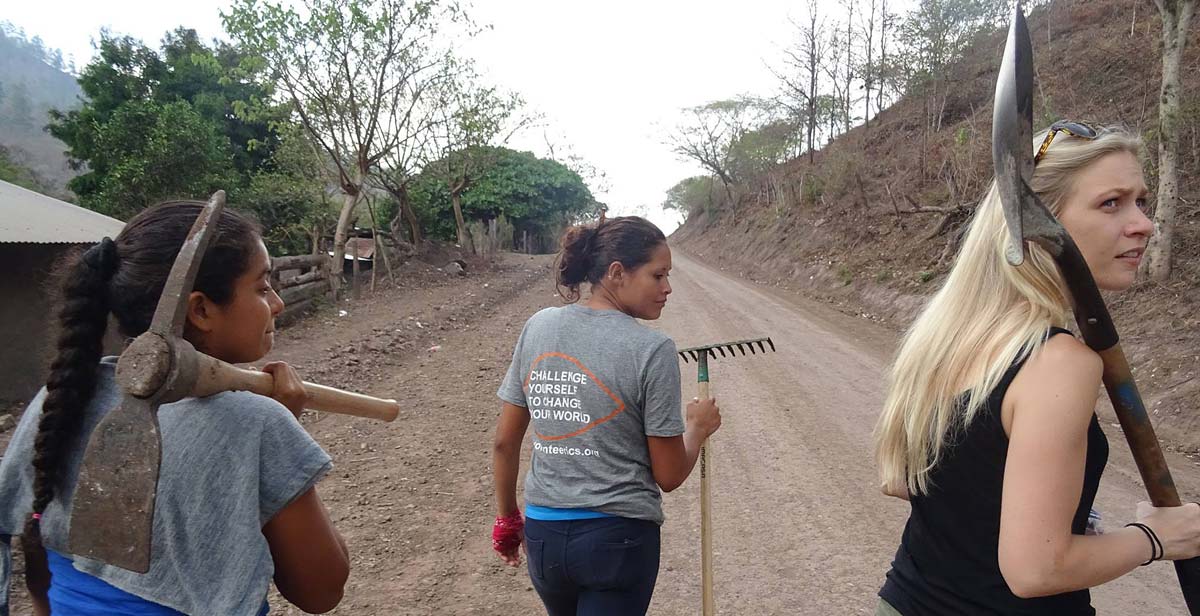
Asides from being a good deed there are countless personal gains that can be made from volunteering and it can be argued that an entirely self-less good deed is illusive. Since our arrival here in Nicaragua, and into the small rural community of El Bramadero, we have had the opportunity to work for an international development project aimed at helping the community adapt to environmental issues, whilst raising awareness of climate change. The ease at which our team can give examples, as follows, of the personal gains and skills that they have developed whilst being here is testament to how worthwhile volunteering can be for many reasons other than the cause:
Increase in self-confidence and self-esteem: “Pienso que el programa me ha ayudado a mejorar mi auto estima porque me ha tocado interactuar con muchas personas e impartir charlas a la comunidad (I think the programme has helped me to improve my self-esteem because I am having to interact with many people and to deliver talks to the community)” - José
Experiencing a new culture and language: “If someone had told me three months ago that I’d be speaking and understanding Spanish, there’s no way I’d have believed them. The abundance of hugs, laughs and love, which make up the norms and values of El Bramadero, will be travelling back to the UK with me. Whilst it’s been challenging and frustrating at times, overall it’s been an unforgettable experience.” - Cat
Better knowledge of local, national and global causes: “I have become more aware of the effects of climate change in a rural community (El Bramadero) in the developing world. For example, forest fires caused by global warming have devastating effects in areas like these because the majority of the population work in agriculture.” - Isabel
Gain knowledge and a further understanding about a cause that interests you: “I have learned so much about recycling in order to be eco-friendly within the environment, for example creative ways to recycle bottles. Besides this, living in a community where people need the natural resources, makes me want to raise awareness about climate change.” - Birmania
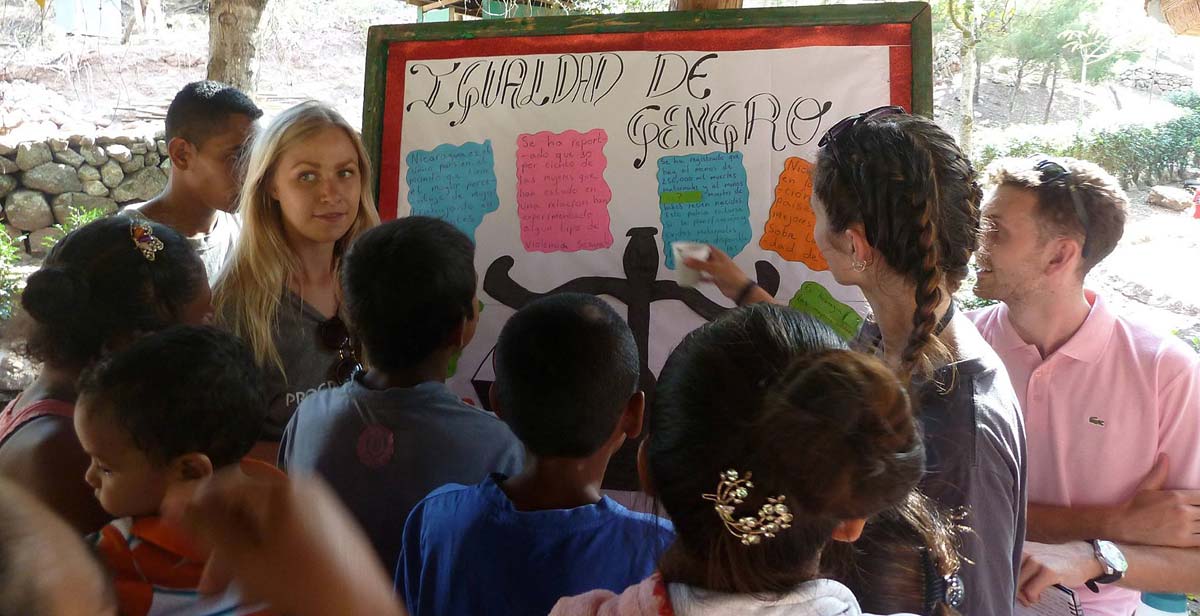
A feeling of community engagement: “It’s been pretty good with the community in terms of engagement. We have loads of people of all ages turn up for our community events, we have men, women, children, young people, old people, and some people even bring their dogs. We can walk down the street most days and all the people we walk past will say ‘Buenas’ and wave at us, the young lads even let us get involved with their football games and baseball matches. It’s quite nice really feeling engaged and involved within the community.” - Jamie
Experience working with a diverse group of people: “Si, he conocido mejores conocimientos como pronunciar una palabra en inglés, trabajar en equipo con personas de otros países por ejemplo, con británicos (Yes, I have developed new knowledge, like pronouncing words in English and how to work with people from other countries, like the British).” - Delvia
Improved communication and leadership skills: “From hour-long office meetings, an Outlook calendar filled with appointments and emails to last you a lifetime… to assessing tropical diseases, overseeing eco-stove and water filter constructions and getting the team through a cycle of forest fires and earthquakes without too many bruises and worries. This experience has been more than I imagined it to be and made me grow so much personally and professionally.” - Amanda
Learning a new skill: “It’s been great fun to develop a new skill when learning how to build eco-stoves, mixing cement, laying breeze blocks, and levelling and rendering the breezeblocks with cement, to create an eco-stove that looks like it’s been made professionally. I feel like this will be an essential life skill if I ever need to perform a bit of DIY work around the house. I now feel confident to take on a project in full expert/’dad’ mode, such as a barbecue or pizza oven in the garden, or a bar for the garage.” - Charlie
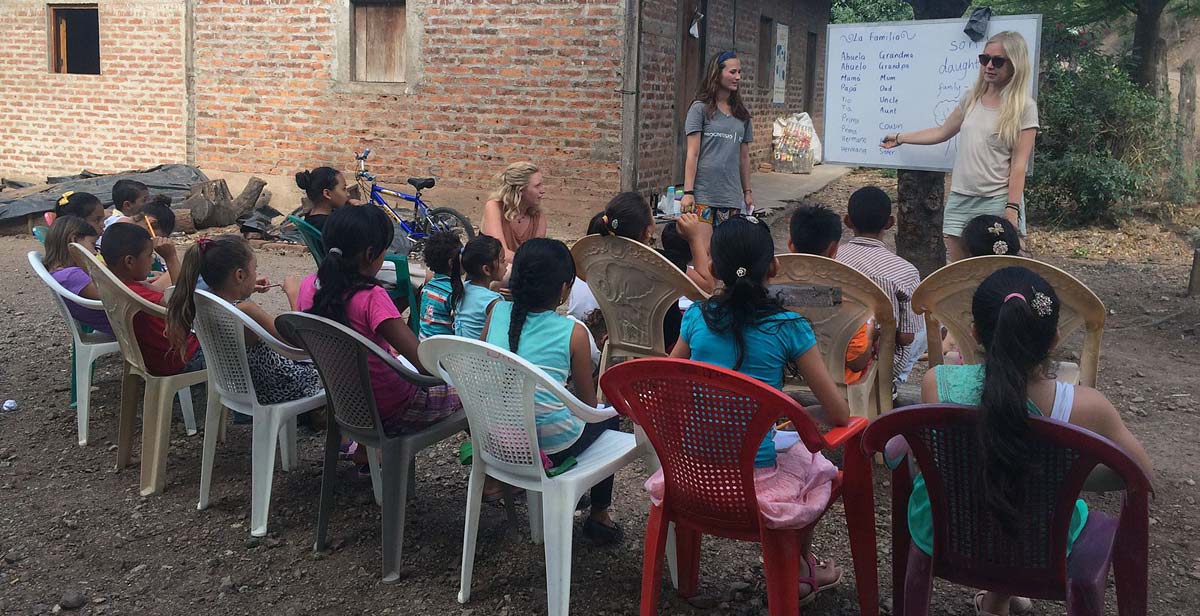
Moving away from your comfort zone: “Life is either a great adventure or nothing (Helen Keller) and so far the Progressio project has provided a great adventure and a great chance to take myself out of my comfort zone. The most memorable experience of this so far has been publicly speaking, in Spanish, to the community on the subject of alcoholism. It gave me the opportunity to address a social issue facing the community, whilst facing my fear of public speaking.” - Holly
A healthy work ethic and a healthy mind: “Work doesn’t have to be a chore, or at least you shouldn’t make it a chore. My time here is another example of how uncomplicated life and work can be if you just don’t make things difficult for yourself. The best times are had and the most work is done when everyone is happy, engaged and having a good time. The work seems to fly by and the creative ideas come flying out when your mind is fuelled by the upbeat energy of others and not made sluggish by stress and worry.” - Rob
Findings from the Helping Out Survey (Low et al, 2007) suggests that there is generally an equal mix of altruism and egotism as the main drivers for voluntary roles. Egotism or self-gain can often be interpreted negatively and of course the presence of egotistic motivations can at times result in many voluntary projects failing to contribute to the cause in a positive manner. However, when both complement one another a mutually beneficial relationship between cause and volunteer can develop, thus adding to the success of the project without any hindrances.
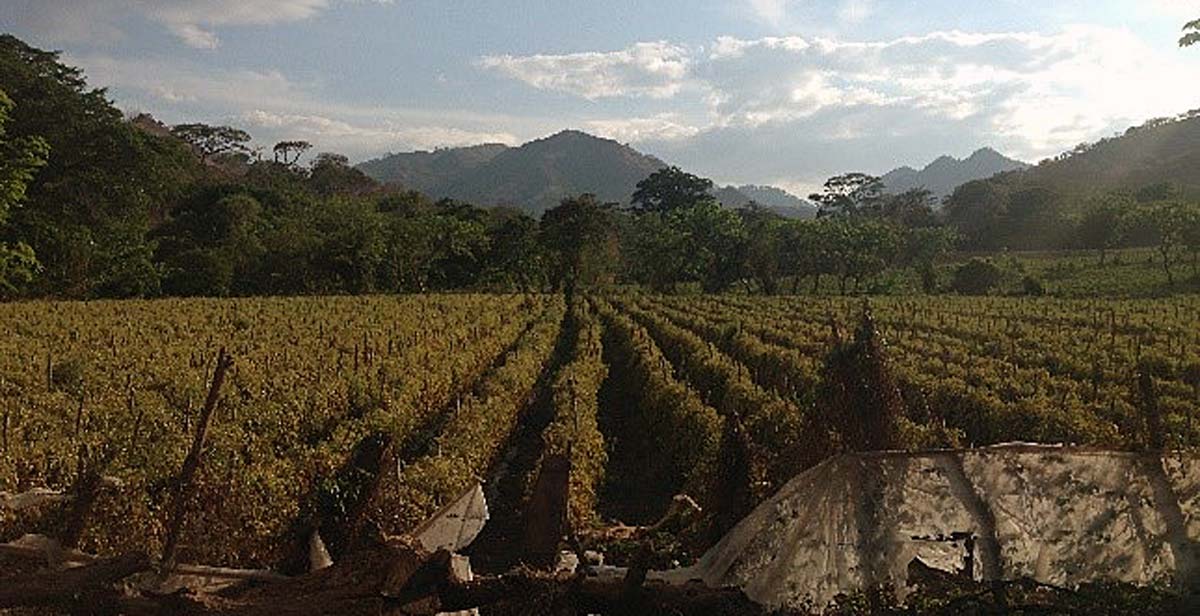
There are many reasons as to why people choose not to volunteer, many include not having enough time, and they donate money to causes instead, or that they simply feel as though their involvement will fail to help make a difference. However, the beauty of contemporary volunteering and websites such as www.do-it.org allows us to choose where we want to volunteer, what role and cause we would be most interested in supporting, whether we can volunteer alone or bring along our children and whether we can spare one hour a week or ten. Every cause has its worth and every cause can provide some sort of personal gain. With endless flexibility, a chance to contribute to your preferred cause and an abundance of opportunities for personal gain, volunteering is undoubtedly the most obvious way of taking part in the beautiful giving and receiving exchange without expense.
Written by ICS volunteer Holly Barber-Rowe


